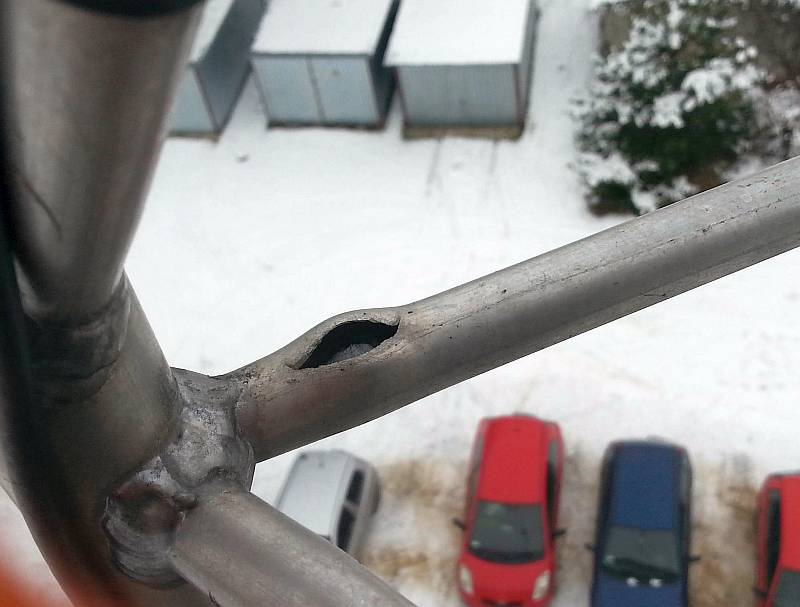Questions & Answers
-
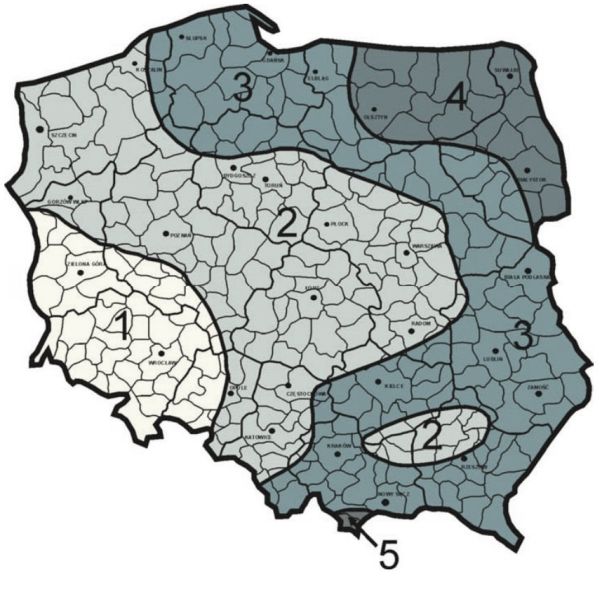
Reactions to building structure – what should I know?
Read more: Reactions to the building structure – what should I know?Customers often wonder why the mast mount is more expensive than the mast itself. The values of the pulling and driving forces in the roof quoted in the static calculations show how important proper anchoring is, which often requires serious construction works and specialized solutions, individually tailored to each building.
-
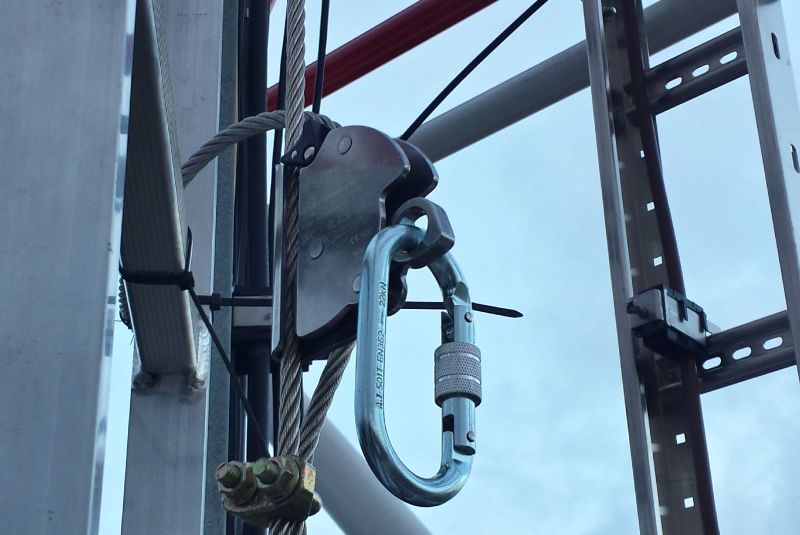
Anti-fall system – what is it and how does it work?
Read more: Anti-fall system – what is it and how does it work?Working on towers and masts can be dangerous. This can be seen from the manufacturers' recommendations, which suggest that no work should be carried out on structures when winds exceed 5 m/s. Fortunately, we have occupational health and safety or mountaineering harnesses at our disposal, which significantly increase safety, although rarely comfort. Changing position on the mast is particularly uncomfortable when each step means having to re-attach the reins...
-
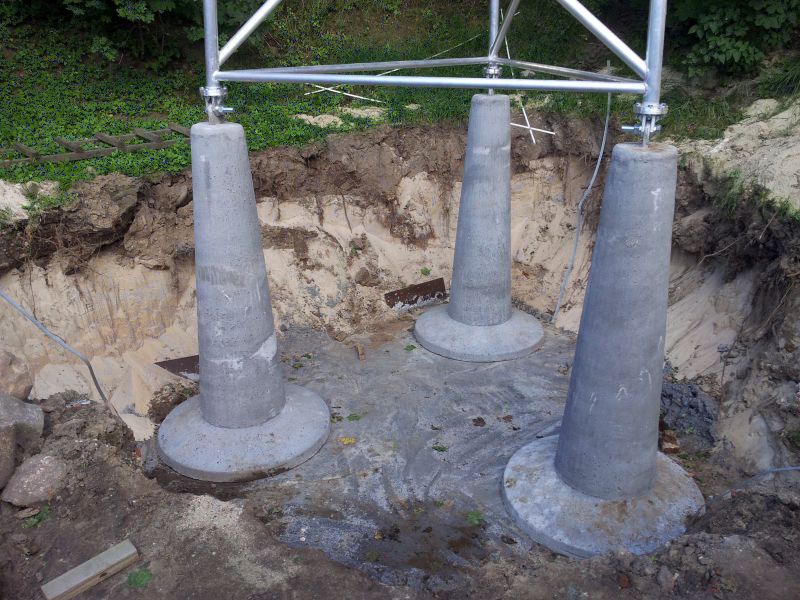
I'm putting the mast/tower on the ground - how should I foundation it?
Read more: I'm putting a mast/tower on the ground - how should I foundation it?Basically, the rule says that the foundation should not extend below the groundwater level. If the water is shallow or very shallow, then a foundation slab loaded with earth embankment is most often used (or shallowly buried "mushrooms", i.e. prefabricated foundations of the F series, e.g. produced by Elbud Gdańsk). Cast slabs are also often used just below the ground surface in areas…
-
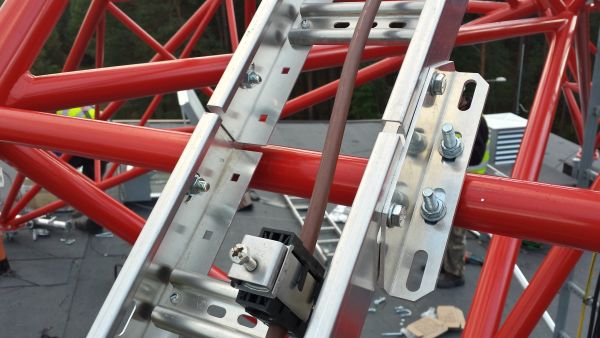
How to remove lightning from a mast safely? Basic knowledge.
Read more: How to remove lightning from a mast safely? Basic knowledge.There are three main issues to consider when dealing with lightning protection from telecommunications masts. In our opinion, the best and cheapest way to dissipate the electric charge is to use a mast or truss tower structure. Alupro solutions are equipped with a special eye in the lowest segment that allows the entire unit to be connected to the building's lightning protection system. In the case of painted structures, remember to remove the coating…
-

Mast and tower service – what should I know?
Read more: Mast and tower service – what should I know?Radio masts and towers require regular inspection and maintenance to prevent breakdowns and life-threatening incidents. Aluminum masts are resistant to corrosion, but susceptible to frost cracking. The condition of guy ropes and rope tension should be checked, and regular anti-corrosion inspections of steel structures are necessary.
-
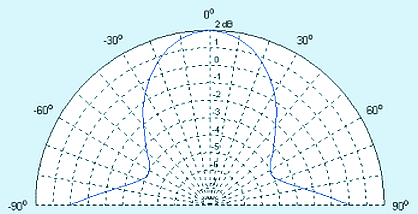
Do I have to report radio wave emissions to any department (e.g. environment)?
Read more: Do I have to report radio wave emissions to some department (e.g. environment)?Apart from the issue of licensing for specific frequency bands, there remains the issue of electromagnetic radiation in the context of environmental contamination. Current regulations allow the emission of a maximum of 15W of power on the antenna without the need to report this fact to the Environmental Protection Department (in this case, we are not dealing with an investment that has a significant impact on the environment).
-

Do I have to paint my mast with red and white stripes?
Read more: Do I have to paint my mast with red and white stripes?Regardless of the location of the mast (ground or building), structures less than 50 m high do not require notification to the competent military aviation supervision authority (100 meters for civil aviation). The legal basis here is the Regulation of the Minister of Infrastructure of June 25, 2003 on the method of reporting and marking air obstacles (Journal of Laws No. 130, item 1193...
-

In my area, the County Office expects PnB in relation to the mast on the building - is it right?
Read more: In my area, the County Office expects PnB in relation to the mast on the building - is it right?There are many indications that there is not. In legal circulation there is judgment II SA/Gd 329/14 issued by the Provincial Administrative Court in Gdańsk. In the justification of the appeal judgment in this case (i.e. building permit in the context of a mast on a building), the Court cited the content of Art. 29 section 2 point 15 of the Construction Law Act, as well as Art. thirty…
-

Does a radio mast require a building permit?
Read more: Does a radio mast require a building permit?Masts below 3 meters do not require a permit. Masts over 3 meters on buildings are subject to notification unless local regulations require a building permit.
Subscribe
Log in with your email address to receive our newsletter (quarterly)
Latest questions and answers
- Cooperation with SpaceForest
- Assembly for chemical anchors - description of the technique
- How to avoid frost cracks and their consequences?
- Optimization of the height of masts for a radio link.
- Stainless steel – What grades?
Question categories
- No category (3)
- Prices (1)
- For architects (8)
- Stage Structures (3)
- Materials science (6)
- Metallurgy (5)
- New in production (1)
- Law (4)
- Questions & Answers (20)
- Radio communication (4)
- Technologies (12)

